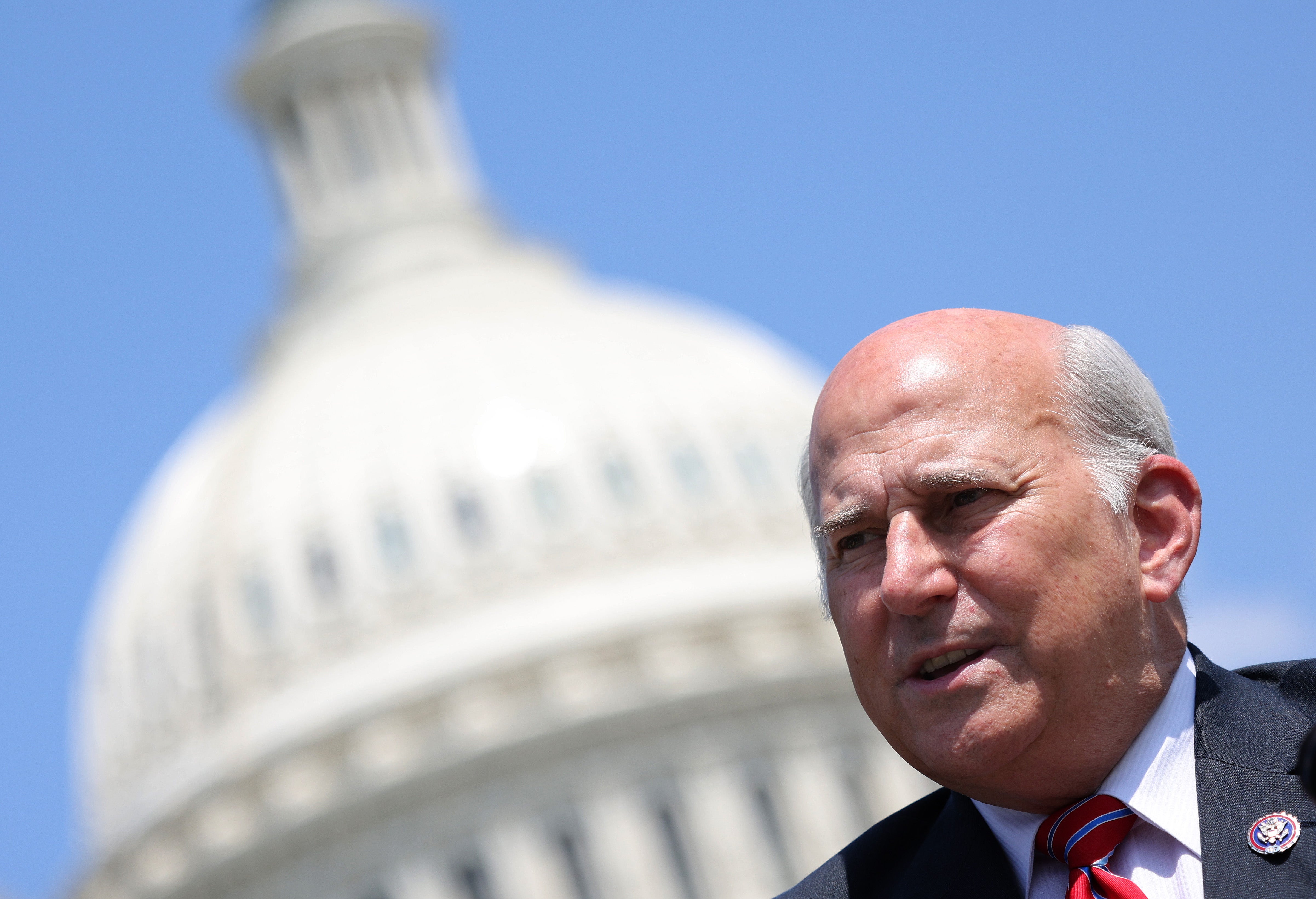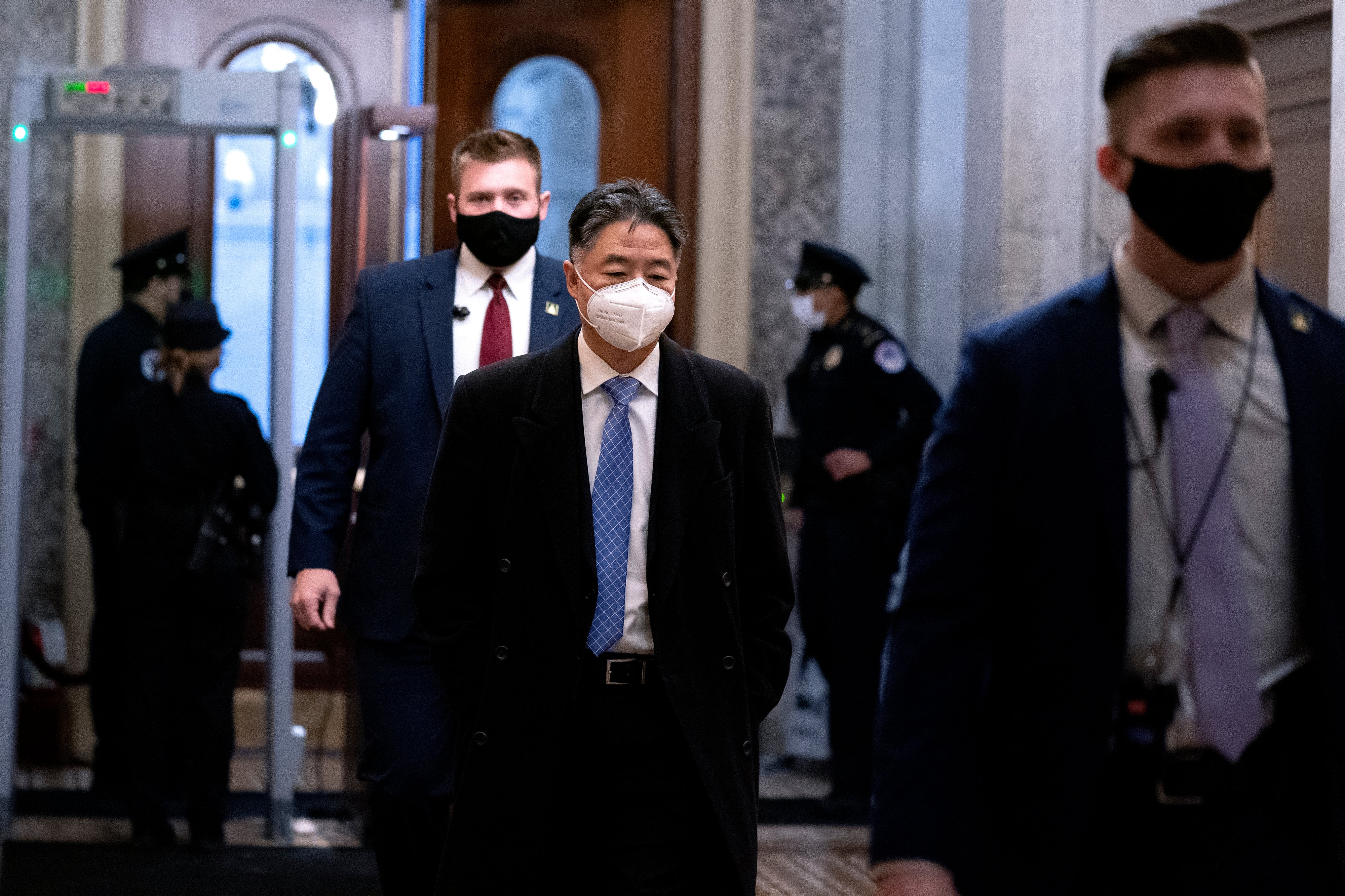‘More toxic, more difficult’: How January 6 broke the House
The Capitol riot wasn’t just an assault on democracy; it turned Congress into a hostile work environment, writes Eric Garcia


Your support helps us to tell the story
From reproductive rights to climate change to Big Tech, The Independent is on the ground when the story is developing. Whether it's investigating the financials of Elon Musk's pro-Trump PAC or producing our latest documentary, 'The A Word', which shines a light on the American women fighting for reproductive rights, we know how important it is to parse out the facts from the messaging.
At such a critical moment in US history, we need reporters on the ground. Your donation allows us to keep sending journalists to speak to both sides of the story.
The Independent is trusted by Americans across the entire political spectrum. And unlike many other quality news outlets, we choose not to lock Americans out of our reporting and analysis with paywalls. We believe quality journalism should be available to everyone, paid for by those who can afford it.
Your support makes all the difference.For Rep Nikema Williams, the assault on the Capitol was also an assault on the work she had done in her home state. Ms Williams serves as chairwoman of the Georgia Democratic Party, which had just flipped the state that Mr Trump had made the state a centerpiece about his election lies.
“It was deeply personal, especially coming from Georgia, when my state was one of the states that was going to be objected to and with the false narrative of election fraud still being hung over the electoral victory and I was one of the electors in Georgia, so it was very personal for me,” she said.
Ms Williams was only in office for three days when the riot occurred, having been sworn in to replace the late civil rights hero Rep John Lewis. But because of the Covid-19 pandemic, there were few opportunities to bond with freshman members across the aisle, which further bred suspicion with her Republican colleagues.
“And I know that going into many conversations I look up how people voted on that day before so that I know what I’m dealing with walking into meetings and conversations looking forward,” she told The Independent.
The January 6 riot was an assault on democracy, meant to undermine the democratic process. But Capitol Hill is also an office where 435 members of Congress, together with five non-voting delegates, 100 Senators and thousands of staffers that range from seasoned professionals to earnest recent college graduates and interns, all work.
The Independent’s interviews with multiple House members and former staff, paint a picture of a hostile work environment in the wake of the Capitol riot. One year on, the heart of American democracy is riven by distrust and division that goes far beyond partisan politics as usual.
Representative Jason Crow of Colorado, a former Army Ranger who attempted to protect his colleagues during the insurrection, said that he hoped that there would be a moment when the GOP would denounce the lies of the White House.
“That unfortunately has not turned out to be the case and many of them continue to enable Donald Trump and double down on the Big Lie,” he said.
Republicans for their part clearly see the consequences of the insurrection as disproportionate. In the time since the riot, the House set up metal detectors, which has incensed some. Reps Louie Gohmert of Texas and Andrew Clyde of Georgia were both fined for metal detector violations and have filed a lawsuit against their use, especially given that House Majority Whip Jim Clyburn avoided the procedure and House Speaker Nancy Pelosi walked past them.

Similarly, Republicans were incensed after House Speaker Nancy Pelosi rejected House Minority Leader Kevin McCarthy’s selection of Reps Jim Banks and Jim Jordan to the 6 January Committee, which led him to pull all of his members from the select committee.
“This represents an egregious abuse of power and will irreparably damage this institution,” he said at the time. “Pelosi has created a sham process.”
As a result, the sole Republicans on the committee are Reps Liz Cheney and Adam Kinzinger, who have been all but exiled from the GOP caucus. Tensions will likely rise when the House returns as the committee has requested documents leading up to the riot from Republican Reps Scott Perry and Mr Jordan, both ardent allies of Mr Trump.
At the same time, the state of Congress did not deteriorate overnight. The long hours and the low pay started to wear on even the most seasoned staffers. One senior Democratic staffer who requested anonymity to speak candidly and who left the Hill during the summer, said that the wages had been stagnant for a decade.
“I’ve moved up in it, but my pay is the same as the person who had my job six years ago, at the front end and that’s kind of a consistent issue,” they told The Independent. At the same time, the erratic schedule disincentivized many, saying how there used to be a consistent session when the House was and was not in session. But in the weeks leading up to the riot, Congress came back at least one day every week.
“January 6th was at the end of a really crazy period in the building up for that, where there was just shut down fights constantly,” they said. “I was working for a member of Congress who was in a swing district, so it all comes home. It was a long period leading up to that.”
And the staffer said there were signs it could go wrong, saying that the week of the vote, there was a senior staff call.
“It was talking about security risk in a way that, frankly, doesn’t feel like Capitol Police really did, or maybe the National Guard, depending on all those news was coming out,” they said, noting that the senior staff was “more clued into the fact that this could get really bad, and we try to keep people going away from the office.”
And even then, some Democratic staff felt their bosses were not completely understanding how traumatic the riot was. Another staffer who asked to speak anonymously said that the day after the riot, the member he worked for called them to tweet out an article of impeachment the member had drawn up because they were afraid another member would steal it.
“I had kind of hoped to take a day to process it but it was like right back to work,” he said. “Which, I get it, impeachment was important. But there was never a point between then and when I left that either the member or the chief reached out to staff to check in or encourage us to shut down for a bit.”
In turn, the staffer said they decided to share counseling resources the House offered to offices, which wasn’t their job but nobody else was doing it.
After the attack, the senior staffer who worked for a moderate member said there was suspicion that had not existed before, noting how during one of their final weeks, the House reinstated its mask mandate and in one elevator with Republicans, there was a feeling of distrust or a row might break out.
“You could feel tension with people who you do not know. People didn’t feel like they were all there for the same reason anymore, which used to unite Congressional staff, regardless of party. That’s also very true on the member level,” they said, noting how this animosity was building after the election. “The period after the election was a really long build that I think made people stop seeing each other as colleagues in the way that they, maybe, used to and start seeing themselves toward the opposition.”
Similarly, some staffers had to deal with the trauma psychological effects of their workplace being breached. One former staff member who lives not too far from the Hill and wasn’t on the Hill during the riot and has since left said their pet cat would wake them when the cat saw they were crying in their sleep.
"You know what would’ve been really nice, would be if you had canceled votes for maybe a week," and just told everybody, ‘Take some time,’ but that didn’t happen,” they said. “And I understand why it didn’t. But it just made it all so much harder to the point when I got a threat call in June, I broke down. And it was one of those things where I was yelling at myself for breaking down. And then I had to remind myself, ‘No, your workplace got attacked. It’s okay.’”

Similarly, many Democratic members of Congress said that the riot changed how they interact with their Republican colleagues. Rep Ted Lieu of California, who was an impeachment manager last year, said that he gets along with Republicans who agree that what happened on January 6 was an assault and was not a normal tourist visit, as some have tried to characterize it.
“So if a Republican member of Congress is going to call it a normal tourist visit, then I can’t really go forward with someone who is in an alternate reality,” he said. He also said Republican leadership has failed to bring down the temperature in the House.
“Republican leadership can reduce the risk of political violence by saying one truthful statement: The election was not stolen,” he said. "The refusal to make that simple true statement is increasing the risk on all of us.”
Rep Barbara Lee of California said that it has changed her relationship with some Republicans but that she and all Democrats have some members they work with.
“Well I mean we all have our own individual Republicans we work with,” she said. “It makes us leery, it makes me leery of some who, you know, if they lie about what everyone knew took place what else will they do.”
Incidentally, while there are still occasional feuds on the Senate side, they do not rise to a boiling point like on the House side. Sen Kirsten Gillibrand of New York, who regularly works with Republicans, hypothesized that the Senate’s rules being different makes it that way.
“We disagree deeply on many many issues, but there’s a lot we can find common ground on, and my job is dependent on finding common ground,” she said.
Rep Filemon Vela, a Democrat from Texas who is retiring, said the riot played “zero” role in his decision to leave but said how it might have a chilling effect on people entering Congress.
“I think although well-qualified candidates filed for some of the vacant seats, there were a lot of current elected public officials who chose not to run and I think the dysfunction here is probably one of the biggest reasons for that,” he said.
Rep Jimmy Gomez of California said that he hopes more people get into public service and January 6 doesn’t freeze out civic-minded people.
“It will discourage some but in the end, people that believe in this country, that understand what’s at stake are going to step up I think across the political spectrum,” he said. “I think that maybe on the Republican side, it’s more toxic and more difficult to run, but I hope there are Republicans of good conscience that step up.”
Similarly, the senior staffer who has since left the office said they hoped there would be some people who would want to work on the Hill.
“I’m glad I left when I did. I think that we need people to care, and if you care enough and you’re there for the right reasons, you should absolutely go,” they said. “You got to be careful and keep an eye out for what’s best for you and realize at some point that might not be it anymore.”







Join our commenting forum
Join thought-provoking conversations, follow other Independent readers and see their replies
Comments